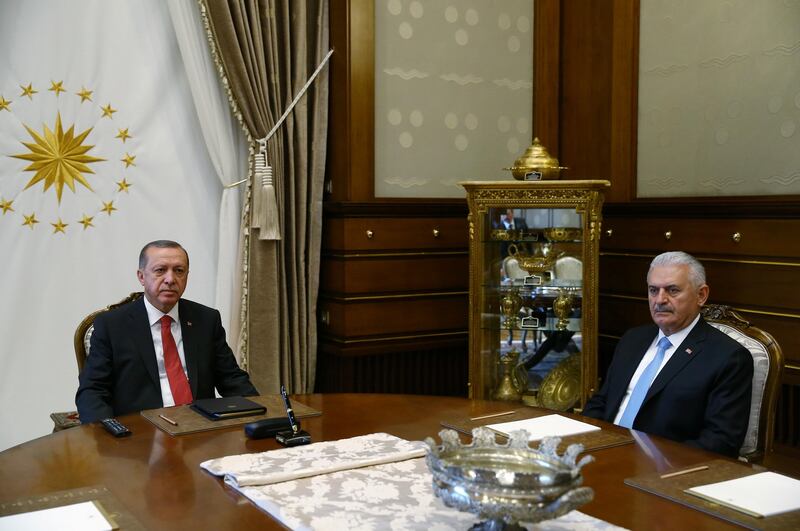Turkey's prime minister announced a limited cabinet reshuffle on Wednesday, replacing or swapping 11 ministers but keeping the government's economic management team largely in place.
Binali Yildirim said that 15 ministers remained in their posts in the 26-member council of ministers. Five new ministers were joining the cabinet and six of its members reshuffled.
The announcement came months after president Recep Tayyip Erdogan regained the leadership of Turkey's ruling party following a narrow win in a referendum ushering in a series of constitutional changes.
Mr Erdogan had complained of a "fatigue" within the ruling party, speaking of a need for rejuvenation.
Mehmet Simsek, a figure widely respected by investors, remained a deputy prime minister, Naci Agbal stayed on as finance minister, while the economy, customs and development ministers also kept their posts.
"Simsek remaining as the one and only deputy PM in charge of the economy is positive, since it hints that sound policies and structural reforms might continue to be on the agenda," said Ozgur Altug of BGC Partners in a note to clients.
In all, four out of Turkey's five deputy prime ministers were replaced.
Mevlut Cavusoglu kept his job as foreign minister and Berat Albayrak, Mr Erdogan's son-in-law, remained as energy minister. Numan Kurtulmus, who had been a deputy prime minister and government spokesman, was appointed tourism minister.
The key ministries for the economy, finance, foreign affairs, the interior and European Union affairs remained unchanged.
Mr Yildirim appointed Julide Sarieroglu as the minister for labor and social security, raising the number of women in the Council of Ministers to two.
He made the announcement following a previously unannounced meeting with Mr Erdogan and described the reshuffle as a "change of blood."
The April 16 referendum approved a series of constitutional changes abolishing the office of the prime minister and concentrating much of the executive powers in the hands of the president.
While most of the changes will come into effect after the next general elections in 2019, one amendment came into effect immediately — scrapping laws that require the head of the state to sever ties with political parties. Mr Erdogan was re-elected chairman of the ruling party in an extraordinary congress on May 21.
A reshuffle had been widely expected since then.






